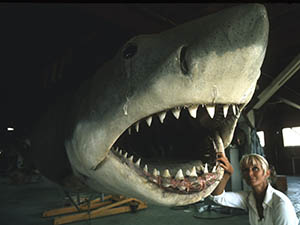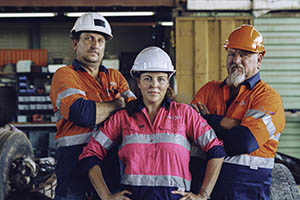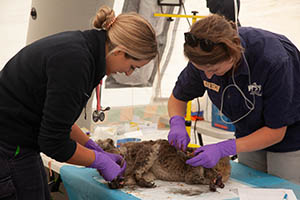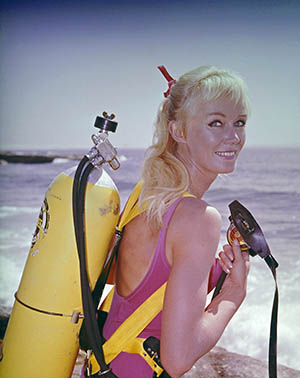 Human Rights Activist Peter Tatchell - protesting in Moscow, 2018 from WildBear produced feature documentary "Hating Peter Tatchell" (c) Christopher AmosWildBear Entertainment is a content studio that produces factual film and television. They have clients across all the Australian free to air television networks and Foxtel; plus international networks, like Disney+, National Geographic, Netflix, BBC, PBS, ZDF, Arte, CCTV, NTV, France Televisions, Mediawan and Viasat.
Human Rights Activist Peter Tatchell - protesting in Moscow, 2018 from WildBear produced feature documentary "Hating Peter Tatchell" (c) Christopher AmosWildBear Entertainment is a content studio that produces factual film and television. They have clients across all the Australian free to air television networks and Foxtel; plus international networks, like Disney+, National Geographic, Netflix, BBC, PBS, ZDF, Arte, CCTV, NTV, France Televisions, Mediawan and Viasat.
The company was formed in 2014 by the merger of Wild Fury and Bearcage Productions, incorporating the stock library, Content Mint. Bringing together a combined domestic and international industry experience of more than fifty years, WildBear has offices in Canberra, Sydney and Brisbane as well as Dunedin Aotearoa (New Zealand).
WildBear produces over 150 hours of content a year. This content can take the form of a TV documentary for a broadcaster, a series for a streamer, or it might be a feature documentary for theatrical release.
WildBear owns the intellectual property in the content they develop. Not only do they come up with the idea for original content and a plan for producing the film, they are also responsible for raising the finance. They bring to the market around 250 projects a year in total and of those they finance around 35 annually.
A period of growth
 Valerie Taylor on the Jaws film set standing next to a shark prop from feature documentary "Playing with Sharks: The Valerie Taylor Story" produced by WildBear (C) Ron & Valerie TaylorOver the past 12 months WildBear has aggressively expanded. They have hired a new executive producer in Brisbane and opened a new office in New Zealand. With Australia’s relatively low-COVID status, the company identified a possible structural advantage. Unlike many other companies globally that have been cutting or constraining output, WildBear have been focused on ways to build and extend the business.
Valerie Taylor on the Jaws film set standing next to a shark prop from feature documentary "Playing with Sharks: The Valerie Taylor Story" produced by WildBear (C) Ron & Valerie TaylorOver the past 12 months WildBear has aggressively expanded. They have hired a new executive producer in Brisbane and opened a new office in New Zealand. With Australia’s relatively low-COVID status, the company identified a possible structural advantage. Unlike many other companies globally that have been cutting or constraining output, WildBear have been focused on ways to build and extend the business.
CEO Michael Tear says that their headcount is higher now than it was 12 months ago, before the pandemic hit.
Michael believes that sometimes it takes a major shock to shift an organisation from business as usual to a period of innovation. “I've always found that when you have some external shock or challenge in the business and you adapt to it, you actually build a more resilient company. Whether it’s the Global Financial Crisis or even something like a major project falling over, there’s the realisation that you must find other revenue sources. Those constraints can be what you need to force the business to innovate”.
Capturing attention in a crowded market
Michael says that when it comes to content there is a huge demand, but there's a huge supply as well. In this abundant digital age, the challenge is getting the attention of the audience. This could mean focusing on a very specific niche with very specific interests, or it might be a project with a broad general appeal.
“There's a reason why a film gets the attention of the public. Not only are we bringing products to market, but we've also got to make sure that when we launch them that they get attention in a really crowded marketplace. This means a more intense interrogation of a concept and the way we pitch the project that to the market. We are even more focused on points of difference and what else is out there. What separates a product, what makes it unique and emphasising that to the buyers.”
Getting it right can lead to international success
 Lauren and Myron Hartwin, Hartwin Industries Group, from WildBear produced "Demolition Downunder" (c) WildBear Entertainment Pty LtdWildBear recently caught the audience’s attention with the feature documentary from Producer Bettina Dalton and Director Sally Aitken with, Playing with Sharks – The Valerie Taylor Story. The documentary features the extraordinary life and legacy of underwater film pioneer and shark conservationist Valerie Taylor and was chosen as one of only 10 films for the World Cinema Documentary Competition section at the 2021 Sundance Film Festival. Michael says that this is a major accomplishment as something like 900 films are assessed in the international section and only 12 are picked. The film has been covered by over 100 media publishers, appeared in 14 international festivals, won 10 awards and is eligible for an Oscar.
Lauren and Myron Hartwin, Hartwin Industries Group, from WildBear produced "Demolition Downunder" (c) WildBear Entertainment Pty LtdWildBear recently caught the audience’s attention with the feature documentary from Producer Bettina Dalton and Director Sally Aitken with, Playing with Sharks – The Valerie Taylor Story. The documentary features the extraordinary life and legacy of underwater film pioneer and shark conservationist Valerie Taylor and was chosen as one of only 10 films for the World Cinema Documentary Competition section at the 2021 Sundance Film Festival. Michael says that this is a major accomplishment as something like 900 films are assessed in the international section and only 12 are picked. The film has been covered by over 100 media publishers, appeared in 14 international festivals, won 10 awards and is eligible for an Oscar.
International interest in the film exceeded expectations and the festival sparked a bidding war for the rights to the film. It eventually found its rightful home, given its conservation message, with National Geographic Documentary Films and was premiered globally on Disney+.
Screen Australia provided principal production investment and development support and the documentary was developed and financed with the assistance of Screen NSW.
Each film requires an entrepreneurial mindset
Michael explains that once there is an idea for a project, you need to piece together the business model, the marketing plan, and the partners. For every 10 ideas you come up with only one or two will get funded. It's a numbers game and you have to be prolific; and then when you get an opportunity you have to be extremely rigorous in the pursuit of that.  Koala in treatment after 2020 bushfires from documentary "Bushfire Animal Rescue" produced by WildBear (c) WildBear Entertainment“The trait that I've seen in a lot of really good producers is they have hundreds of ideas. They are good at filtering and having lots of things going at once. They also need to have a laser-like focus on a particular thing when they need to get the project across the line. And then they also must be good at working with other people, delegating and if something goes wrong, being there to make sure that the team stays on track. It's very much an entrepreneurial skillset”.
Koala in treatment after 2020 bushfires from documentary "Bushfire Animal Rescue" produced by WildBear (c) WildBear Entertainment“The trait that I've seen in a lot of really good producers is they have hundreds of ideas. They are good at filtering and having lots of things going at once. They also need to have a laser-like focus on a particular thing when they need to get the project across the line. And then they also must be good at working with other people, delegating and if something goes wrong, being there to make sure that the team stays on track. It's very much an entrepreneurial skillset”.
Michael says that this is not easy, but it's something that in WildBear’s case has been honed over many years. It comes with experience, but also the benefit of having several people with experience who can validate ideas and provide input. This makes them stronger and better and goes to the culture of the organisation.
Another recent WildBear film, Hating Peter Tatchell is about Australian gay rights activists, Peter Tatchell, who lives in the UK. He is very well known amongst celebrities like Stephen Fry and Elton John. Michael says, “We were able to work with these high-profile people to get the attention of Netflix and they acquired that film. You try to think about your content in a sea of content. From a creative makers point of view, they're often focused on their work and what they're doing to make the work as good as it can be. However, there is a business side, and you can't just assume that a great piece is actually going to rise to the surface. You've got to be aware of how you'll get attention and have a strategy for bringing that piece of content to the market. You need to have thought about how your buyers might position it and get it out there into the public domain, because ultimately, it's about finding an audience”.
Factual shows are creating a buzz
 Valerie Taylor with scuba equipment from feature documentary "Playing with Sharks: The Valerie Taylor Story" produced by WildBear (C) Ron & Valerie Taylorany of the stories produced by WildBear have very distinctive Australian content but with global appeal. WildBear exports content to countries such as the USA, Canada, France, Germany and China. The UK, Canada and the US are the biggest content markets in the world and WildBear has a strong presence there.
Valerie Taylor with scuba equipment from feature documentary "Playing with Sharks: The Valerie Taylor Story" produced by WildBear (C) Ron & Valerie Taylorany of the stories produced by WildBear have very distinctive Australian content but with global appeal. WildBear exports content to countries such as the USA, Canada, France, Germany and China. The UK, Canada and the US are the biggest content markets in the world and WildBear has a strong presence there.
There are a number of global trends that have helped to fuel an increase in engagement with factual content. Film and television culture sits at the heart of the debate around equity and diversity and reflects our ambition for a fairer world. This can be seen in the massive engagement around the Black Lives Matter and #MeToo movement.
The growth of mobile viewing and subscription video on demand provides consumers with an abundance of choice and allows them to self-aggregate content. This has created opportunity for global and niche providers.
Michael says that if you want to reach a niche audience such as those that like science films, you really must understand them, know what they want and know where they're going to look for it. You also need to know what else is being made.
“All of these platforms have a slightly different brand or character, and you really need to understand what that character is, so that you can pitch content ideas that they know will work with their audience.
“But then you also have to innovate. You can't just rely on the same old ideas. Good content doesn't operate in a void, you need to watch a lot of content and immerse yourself in storytelling, visuals and films”.
COVID-19 risk is now a filter through which all strategies need to be examined
We now have a filter that we need to apply to all ventures and that is looking at the COVID risk and its impact on every project.
“We have definitely had to adapt our production model. Some of the content ideas that we're developing now have an international element. Recently, we had a good example. We were looking at a project which involves some shooting in the Pacific, and we were thinking that we could quickly zip over there. But you can't. You've actually got to fly to LA and then fly to Dubai in order to reach that location. Suddenly that throws another level of complexity into your project planning.
“There are a lot of things that we previously took for granted around mobility that we just can't anymore, and we just have to adapt to this degree of uncertainty and risk.
“You can change the story, you can find someone who's already on location, or maybe you get someone from LA to fly there, rather than trying to send send one of your own people. You must factor in what would have been considered unthinkable and COVID is just part of it. You also need to think about things like storms, weather changes, and climate. We're in a very unstable environment”.
Michael says you also need to factor in the political environment when working internationally.
“Do you listen to the news? Do you ignore the news? How much do you consider the macro environment? You can potentially get caught up in a lot of these things, but you need to sit down and look at the specifics of your particular case.
“I think all of this has gone into making for more careful, rigorous planning around the way we approach production.”
The impact on staffing
WildBear currently has 122 people working on projects, and over the course of a year they would have around 250 staff of which a third would be full time, about a third would be contract staff, and a third would be freelancers.
With culture such an important driver of company success, an onboarding process is particularly valuable with many people working remotely now.
Michael says that they are doing much more remote work than they have ever done in the past.
“One of the benefits is that you potentially open yourself up to a much bigger talent pool than if you're locked into geography and an office”.
However, he questions whether the impact of remote working might be inversely proportionate to the length of your career.
“It’s a necessity and useful in times of crisis, but when you are just starting out, I feel like it's more important that you build your connections than when you're well established in your career and at the senior level. I worry a bit about new starters becoming a bit of isolated disconnected and task focused. While some of our work is really task focused you do need to make sure that you make time for collaboration”.
For more information about WildBear Entertainment, visit https://www.wildbear.tv/
An initiative of the ACT Chief Minister’s Export Awards
The ACT Chief Minister’s Export Awards aims to showcase and celebrate the achievements of Canberra region exporting businesses. These Canberra and region businesses transact significant parts of their business activities (legal, accounting, production, research etc.) through the ACT as they develop international markets. The ACT Chief Minister’s Export Awards aims to build the pathway for new and emerging Canberra region businesses seeking to internationalise their business. If you are a new or existing exporting businesses in the Canberra region, you can access a range of support as well as network with other exporting businesses, including
The ACT TradeStart Program helps ACT exporters to achieve long term success in international markets. The TradeStart program allows the ACT Government to work closely with Austrade and access key Austrade resources such as their export database, trade mission activities, their off-shore offices, intelligence and international connections for the trade and investment activities to support ACT exporters.
The International Business Engagement Program is being delivered by Canberra Business Chamber on behalf of the ACT Government. Its main objective is to maintain, rebuild and find new opportunities for Canberra and region businesses to engage internationally. The program focuses on building the Territory’s exporting community; providing training and support by facilitating seminars and workshops; creating links between local industry and other government support programs; assisting the ACT Government in co-ordination of business trade delegations (outbound and inbound).


